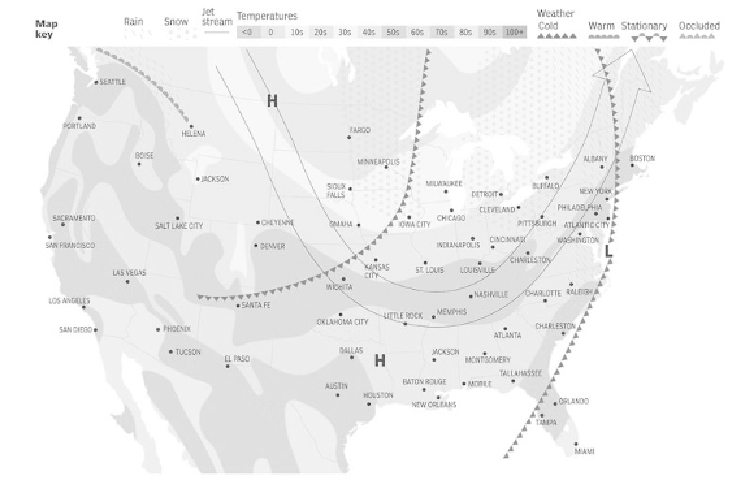Geoscience Reference
In-Depth Information
Figure 7: Temperature map for North America on 11 March 2013
Inthetropics,itisfrequentlyclaimed thatevaporation willincrease inawarmerworld,
and that this will lead to extremes in precipitation, drought, storminess, etc. As already
mentioned, there is no statistically significant empirical evidence for any of this, but it is
interesting to ask whether even the underlying assertion is true: will evaporation actually
increase?
In general, evaporation depends on both the temperature of the wet surface, and the
temperature and relative humidity of the air immediately above the surface. The assertion
of increased evaporation depends on the assumption that the relative humidity of the
surface air in a warmer world will remain unchanged from its earlier value. Not only is
there nobasis forthis claim, but a change in relative humidity from 0.8to 0.83is sufficient
to completely eliminate any increase in evaporation that would be caused by a warming
of 3°C, and such changes in relative humidity at the surface are commonplace and easily
produced. The sensitivity to such small changes is not an indication of the delicacy of the
climate system, but rather an indication of the ease with which the system can adjust to
changes.
In the case of claims of increases in extreme weather, even models do not suggest this
to any significant extent. The claims are made without bases for the simple purpose of

